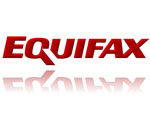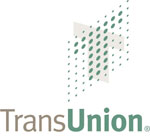| Did you know that the definition of Credit Card includes credit cards, debit cards, ATM cards, store credit cards, gift cards, or any account number given to you for the purposes of supplying you with credit? |
Credit Card Theft is the taking or obtaining of credit card(s), or credit card number(s), with the intent to use them fraudulently.
Credit Card Fraud occurs when the credit card, or credit card number(s), is used fraudulently without the consent of the cardholder.
IMPORTANT NOTE: If one or more of your credit card accounts has fraudulent transactions, and you still have the physical credit card in your possession, than you have likely become the victim of Identity Theft . Additionally, if the fraudulent purchases were made in another jurisdiction, then you are likely the victim of Identity Theft. Visit our Identity Theft section to learn more and file a report.
Also, if someone signed a credit card receipt or draft, this constitutes a separate offense of credit card forgery. Please ensure you keep copies of any records you have showing fraudulent transactions.
Examples of credit card theft/fraud
- Your wallet is lost or stolen and purchases are made on your credit card without your consent.
- An unauthorized purchase appears on your credit card statement from an online retailer.
- If you give someone your credit card and they charge more than you authorized, this may not be a crime. Many credit card user agreements explain that when you authorize someone to use your card, they become an "authorized user."
- If you inadvertently enter into an agreement with a company and they charge your credit card monthly, you have a civil matter with that company. No crime has been committed if you failed to read the small print.
Credit Card theft/fraud has several jurisdictional issues that may cause your case to be redirected to another jurisdiction. As a rule of thumb, a report should be filed where your credit cards were lost or stolen, and where they were fraudulently used.
If you are a Fairfax County resident and your credit cards were used fraudulently, file a report and we will provide you with more information.
- Cancel your accounts right away. Call your financial institutions and ask to speak with a fraud specialist. Make sure you document the details of your phone call, and obtain their contact information. Follow up with them in writing by filing an affidavit of fraud (usually provided by them).
- Make sure you send all information in a certified letter to the financial institution.
- Make sure to request in your letter that the company notifies you in writing when they have resolved your needs.
- File a police report with the correct jurisdiction.
- Contact the three nationwide consumer credit reporting companies and place a Fraud Alert on your credit report. Once you place a fraud alert, creditors are required to verify the identity of a person claiming to be you, before extending credit to them.

|

|

|
Equifax: 1-800-525-6285 http://www.equifax.com P.O. Box 740241, Atlanta, GA 30374-0241 |
Experian: 1-888-397-3742 http://www.experian.com P.O. Box 9532 Allen, TX 75013 |
TransUnion: 1-800-680-7289 http://www.transunion.com P.O. Box 6790 Fullerton, CA 92834 |
Review your credit reports regularly. The Fair and Accurate Credit Transactions Act (FACT Act) requires the three major credit bureaus to provide you with one free credit report a year. The three major consumer credit reporting companies created www.annualcreditreport.com to provide consumers with free credit reports from all three companies.
- Sign your credit card with permanent marker.
- Maintain possession of your credit cards at all times.
- Check your credit card statements for fraudulent transactions.
- Keep credit card numbers and records in a safe place.
- When making purchases online, only use trusted, reputable sites. If it sounds "too good to be true" than it probably is.
The three nationwide consumer credit reporting companies listed above have a lot of good information on how to protect yourself. Visit their websites and talk to representatives of your financial institutions.
Code of Virginia - Laws related to Credit Card crimes
Credit Card Theft.
Credit Card Fraud.
Credit Card Forgery.

